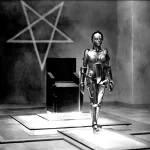Monday Movie: Car Wash, by Craig Schroeder

Every Monday, we’ll highlight a piece of writing from our vaults. This review of Car Wash originally ran as a home video review.
1976’s Car Wash is a cinematic outlier, noteworthy for spawning a ubiquitous disco hit and hosting early film appearances from legendary comedians Richard Pryor and George Carlin (as well as a bevy of performances from notable character actors like Franklin Ajaye, Bill Duke, and Antonio Fargas). Car Wash isn’t a crowning achievement, but it deserves to be remembered as more than a 1970s oddball spectacular.
Void of almost any traditional narrative structure, Car Wash is an impressionistic depiction of the goings-on during a single business day at a downtown Los Angeles car wash. Directed by Michael Schultz—director of revered kung-fu flick The Last Dragon—Car Wash isn’t afraid to break with verisimilitude for a dance number or a song (the Pointer Sisters star in a scene-stealing cameo number), creating surges of music and energy and thriving on charisma and buoyancy.
Though delightful, there is a surprising lack of jokes in the screenplay (written by notorious funny person Joel Schumacher). Other than broad gags (at one point a bottle of urine is mistaken for a Molotov cocktail), Car Wash relies heavily on the charm of its players. Even Pryor—playing a sleazy evangelist named Daddy Rich (“Guess you don’t believe in my church? The Church of Divine Economic Spirituality”)—isn’t given many chances to deliver traditional set-up/punchline jokes. But the film’s vigor, paired with veteran actors and showmen who can deliver a line (Carlin—as a cabbie searching for the fare that ditched him without paying—delivers the same, non-comedic line over and over again to increasing comedic effect), makes it a successful comedy with very few jokes.
Culture writer and professor Roxane Gay has observed that Hollywood has a history of creating and reserving acclaim for black characters “built upon the altar of black suffering or subjugation.” But Car Wash is commendable for being a studio film that portrays an intersectionality of black male characters who are defined by more than just the adversity they face. The result is a more diverse representation of black characters than is often seen (then or now) in large studio releases.
Car Wash is able to weave in subtle themes amongst the silliness, ranging from religious hypocrisy to class inequality. However, the film is at its weakest when it attempts to force these themes onto the narrative with all of the grace of an ostrich on ice-skates. Unfortunately, Car Wash ends on one such sour note: when Lonnie (Ivan Dixon)—the closest thing the film has to a central protagonist—has an earnest conversation about the state of society and his place in it, the screenplay becomes a dull bludgeoning tool, clumsily addressing the same themes executed with subtlety in the preceding minutes. Fortunately, these heavy handed moments (again, screenplay by Schumacher) are few and far between.
It’s easy to see why Car Wash is often relegated to the annals of cult fandom as its aesthetic is a snapshot of 1970s pop culture. But its themes run deeper. And despite boasting some painful moments and a few outdated gags (including a few cheap gay jokes aimed at the otherwise interesting and compelling homosexual character Lindy), Car Wash is an unconventional comedy that stumbles upon relevancy more often than not.






























